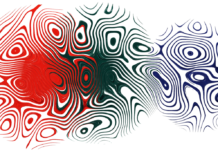Nutrients are essential substances that our bodies require to function properly and maintain optimal health. They are the building blocks of life, providing energy, supporting growth and development, and ensuring the proper functioning of various physiological processes. Nutrients can be obtained from a variety of sources, primarily from the foods we eat, and are classified into two main categories: macronutrients and micronutrients.
Macronutrients are nutrients that our bodies need in relatively large amounts and are crucial for providing energy. The three main macronutrients are carbohydrates, proteins, and fats. Carbohydrates are the primary source of energy for the body and can be found in foods like grains, fruits, and vegetables. Proteins are essential for the growth, repair, and maintenance of tissues and can be obtained from sources such as meat, fish, legumes, and dairy products. Fats play a vital role in hormone production, cell membrane structure, and the absorption of fat-soluble vitamins. Healthy sources of fats include avocados, nuts, seeds, and olive oil.
Micronutrients, on the other hand, are nutrients required in smaller quantities but are equally important for maintaining various physiological processes. Micronutrients include vitamins and minerals. Vitamins are organic compounds that aid in various biochemical reactions within the body. They can be obtained from a wide range of foods, such as fruits, vegetables, and animal products. Minerals are inorganic elements essential for bone health, fluid balance, nerve function, and other crucial functions. Sources of minerals include dairy products, nuts, whole grains, and leafy greens.
Now, let’s explore ten important things you need to know about nutrients:
1. Balanced Diet: Consuming a balanced diet is crucial for obtaining all the essential nutrients in the right proportions. It ensures that you get the necessary macronutrients, like carbohydrates, proteins, and fats, along with a variety of vitamins and minerals.
2. Energy Production: Carbohydrates are the body’s primary source of energy. When consumed, they break down into glucose, which is used to fuel various bodily activities, from basic cell functions to intense physical exercise.
3. Tissue Repair and Growth: Proteins are the building blocks of the body and are vital for tissue repair and growth. They are particularly important during periods of growth, such as childhood, adolescence, and pregnancy.
4. Fats for Vital Functions: Fats play a critical role in the body, serving as a concentrated source of energy, insulating organs, and supporting cell growth. Healthy fats, such as omega-3 fatty acids, are especially beneficial for heart health.
5. Vitamin Functions: Vitamins are essential for various bodily functions. For example, vitamin C supports the immune system, while vitamin D is crucial for bone health and calcium absorption.
6. Minerals for Vitality: Minerals are essential for maintaining electrolyte balance, bone health, nerve function, and enzyme activity. Calcium, magnesium, iron, and potassium are among the key minerals the body needs.
7. Water’s Importance: While not considered a nutrient, water is vital for life. It helps transport nutrients, regulate body temperature, lubricate joints, and eliminate waste products.
8. Nutrient Deficiencies and Excesses: Imbalances in nutrient intake can lead to deficiencies or excesses, both of which can have adverse effects on health. For example, a lack of iron can lead to anemia, while excessive sodium intake can contribute to high blood pressure.
9. Bioavailability: The bioavailability of nutrients refers to how well the body can absorb and utilize them from the foods we eat. Some nutrients may be more readily absorbed when consumed with certain foods or in specific forms.
10. Individual Nutrient Needs: Nutrient requirements vary based on factors such as age, sex, activity level, and overall health. Meeting individual nutrient needs is essential for promoting optimal health and preventing deficiencies.
Nutrients are essential substances required for proper bodily functions and overall well-being. They can be broadly categorized into macronutrients (carbohydrates, proteins, and fats) and micronutrients (vitamins and minerals). Ensuring a balanced diet that provides all necessary nutrients is crucial for maintaining good health, supporting growth, and preventing deficiencies or excesses that may lead to health issues.
Nutrients are essential substances required for proper bodily functions and overall well-being. They can be broadly categorized into macronutrients (carbohydrates, proteins, and fats) and micronutrients (vitamins and minerals). Ensuring a balanced diet that provides all necessary nutrients is crucial for maintaining good health, supporting growth, and preventing deficiencies or excesses that may lead to health issues.
A balanced diet is the foundation of good nutrition, incorporating a variety of foods to meet the body’s diverse needs. Macronutrients play vital roles in sustaining the body’s energy requirements and promoting tissue repair and growth. Carbohydrates, found in grains, fruits, and vegetables, are broken down into glucose, serving as the primary energy source for all bodily functions, from basic metabolism to intense physical activity. Proteins, derived from sources like meat, fish, legumes, and dairy, are fundamental for the growth, repair, and maintenance of tissues, making them particularly crucial during periods of rapid growth, such as childhood, adolescence, and pregnancy. Meanwhile, fats, obtained from sources like avocados, nuts, seeds, and olive oil, serve as concentrated energy reserves, protect organs, insulate nerves, and facilitate the absorption of fat-soluble vitamins.
Micronutrients, though required in smaller quantities, are no less critical to overall health. Vitamins, organic compounds found in various foods like fruits, vegetables, and animal products, are essential for a myriad of biochemical reactions within the body. For instance, vitamin C bolsters the immune system, while vitamin D plays a key role in bone health and calcium absorption. Minerals, inorganic elements derived from sources like dairy products, nuts, whole grains, and leafy greens, are crucial for maintaining proper fluid balance, nerve function, and enzyme activity. Calcium, magnesium, iron, and potassium are among the key minerals vital to overall vitality.
In addition to these specific nutrient functions, water also plays a pivotal role in supporting life, even though it is not considered a nutrient. Adequate hydration is necessary for transporting nutrients, regulating body temperature, lubricating joints, and facilitating the elimination of waste products, promoting overall wellness.
Maintaining a balanced intake of nutrients is essential to prevent deficiencies or excesses, both of which can have significant impacts on health. Nutrient deficiencies can lead to various health issues. For example, insufficient iron intake can result in anemia, causing fatigue and weakness. On the other hand, excessive consumption of certain nutrients, such as sodium, can contribute to health problems like high blood pressure. Striking the right balance in nutrient intake is crucial for optimal well-being.
Bioavailability, the measure of how well the body can absorb and utilize nutrients from the foods we consume, is an important consideration. Some nutrients are better absorbed when consumed with specific foods or in certain forms. For instance, consuming vitamin C alongside non-heme iron (found in plant-based foods) enhances its absorption.
Individual nutrient needs can vary significantly based on factors such as age, sex, activity level, and overall health. It’s essential to consider these factors when planning a balanced diet to ensure that individual requirements are met, promoting overall health and preventing nutrient deficiencies.
In conclusion, nutrients are the backbone of our health, supporting vital bodily functions and maintaining overall well-being. A well-balanced diet that includes macronutrients (carbohydrates, proteins, and fats) and micronutrients (vitamins and minerals) is crucial for optimal health and growth. Adequate hydration through water intake is also essential. Striving for the right balance in nutrient intake, considering bioavailability and individual needs, is fundamental to promote a healthy and fulfilling life.






















